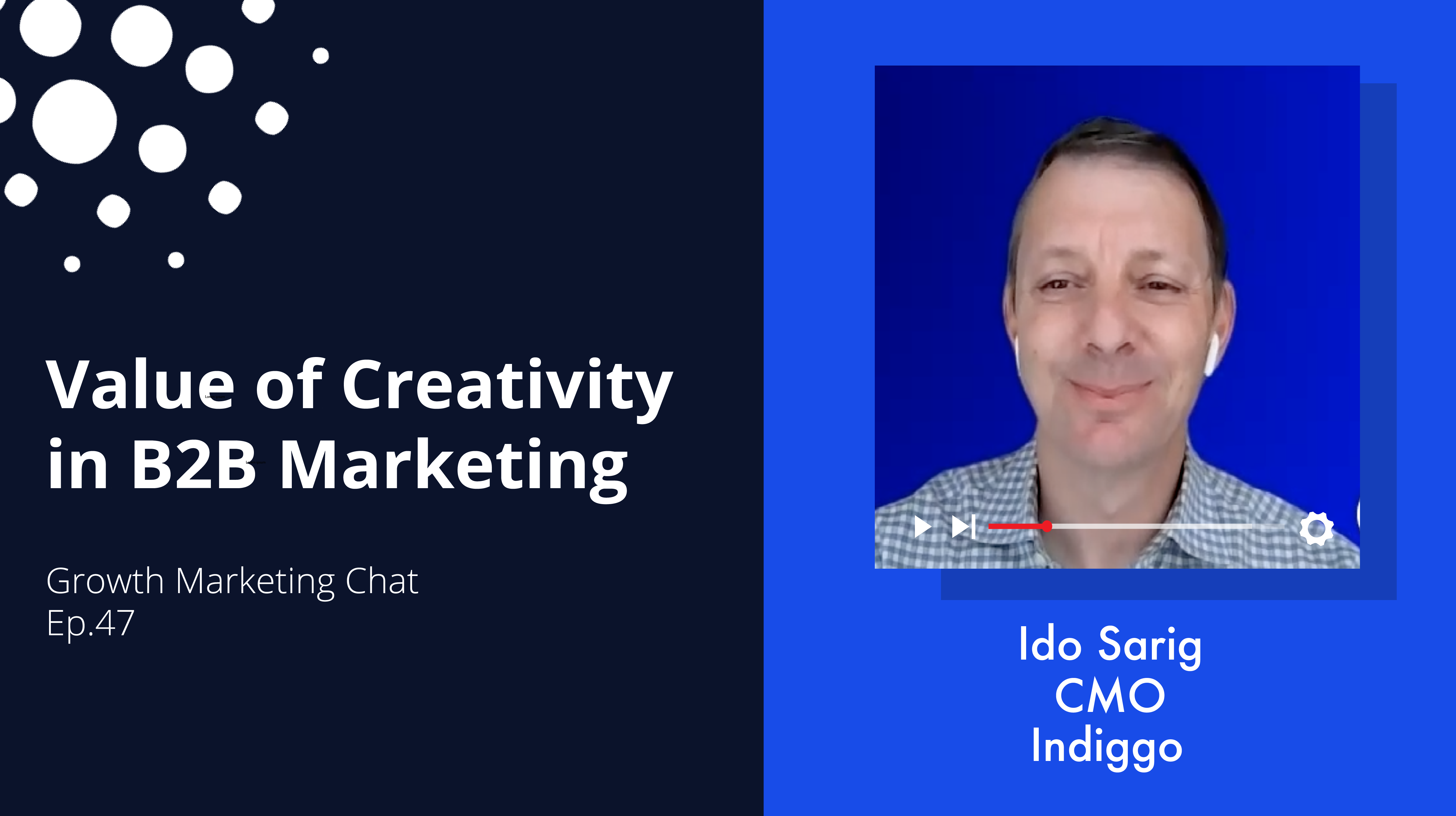One commonly overlooked fact: we as marketers are speaking directly to other human beings! Sounds obvious, right? But then why do we sometimes feel like marketing content, specifically B2B content in more serious industries, has to be only factual, to the point, and honestly a little dull?
Using humor in B2B marketing is OKAY. It’s even encouraged! But it has to be introduced appropriately in order to strike the right chord with your audience.
Have a Little Fun with B2B Marketing
Emily Phelps, aka the “Marketing Swiss Army Knife” (we love this), and Campaign Marketing Director of DisruptOps, is passionate about using levity in B2B marketing, and she agreed to share some key guidelines, including:
-
Remaining authentic and consistent with your brand
-
Choosing topics that resonate with your audience
-
Delivering humor in marketing in a natural way
-
Remembering that you’re marketing to actual human beings!
Looking to make your marketing materials a little less dry and a little more enticing? Tune in now to learn how to incorporate humor while also staying true to your brand identity.
Video Transcript:
CAROLINE: Hi, today I’m here with Emily Phelps. Emily is a great marketer. She is an excellent communicator. She’s been called the “Marketing Swiss Army Knife.” I really love this, this unofficial title.
EMILY: Thank you.
CAROLINE: And today she is the Campaign Marketing Director at DisruptOps. Emily, thank you so much for being with me today.
EMILY: Of course. Happy to be here, thank you.
CAROLINE: So today we’re gonna talk about how to do marketing, especially in B2B, especially in very serious industries, and do it in a way that is not dry and boring. So, my question to you is, how can marketers introduce levity in their marketing, you know, in a tactful way, and why should they consider doing it?
EMILY: Sure, this is definitely a topic I’m passionate about. The fact is laughter is good for us as people and as marketers. It can reduce stress, it lowers blood pressure. It’s memorable, it’s disruptive. And in marketing, it’s just about knowing how and when to use it appropriately. So, there are a few things that I keep in mind. I work in cybersecurity in a cloud for cloud security company. It’s a very serious topic, but the people who are practitioners across all the domains, most of them talk to each other with a lot of levity, because that’s a good way to handle this, a very high-stress field, and a very high-stress responsibility they have on them.
So, the rules that I tend to follow are it’s important to be authentic to your brand. I’m always an advocate that brands should be human, but you shouldn’t try and be something you’re not. So, if it’s just not something you’re comfortable with, if it doesn’t align to who your brand identity is, it’s not necessary. But I do think you miss an opportunity if you don’t recognize it, that the audience you’re speaking to is looking for that in a lot of ways. And you don’t have to feel like you’re going at it alone. I think it’s important to gut check messages, especially as you’re learning and testing content. If you have like a tiger team internally of people, you can check who do a similar job as, or have similar characteristics of who you’re trying to reach.
So, we have dev ops and security pros at my company. And if I’m not sure something is worded right, because humor has nuance, I always run it by them. I have these conversations. I listen to how they’re talking to each other. So, then I make sure that it’s not only authentic to who we are as a brand, but that it’s gonna resonate with people and feel authentic to them because I don’t want to disrespect their intelligence by trying to put something out that I myself don’t understand. And that’s another thing that I think all brands should do, especially if you want to introduce kind of levity and humor is you really have to recognize that your audience is intelligent and they don’t need, if you condescend to them with humor, it’s not gonna work.
CAROLINE: Right.
EMILY: Right? You really want to recognize their strengths and play off of kind of shared frustrations maybe, or shared, just depending on what is most appropriate in your industry.
So, like for example, I have friends who are comedians, and they always say, you know, your rule is always punch up. So, by that they mean you mock positions of power, privilege. And by that I don’t mean that you just make fun of big companies. It’s more about, you don’t mock someone’s hardships. So, I’m never gonna make posts that mock someone who’s been breached, they’ve been victimized by criminals. Like that’s not funny, especially for a brand. That’s just not something that I think is funny if it’s not funny.
Right, but there are things that I see that there are maybe shared frustrations of practitioners that I might poke fun at. So, there’s some materials that are targeted towards security people, for example, and it treats security professionals a lot of times like one homogenous group that all do the same thing. And as you get into security, you learn, like, there’s so many different domains in a CSO. Number one, a CSO at one company, isn’t doing the same thing a CSO at another company is. That’s a chief information security officer, but they’re also domains, a cloud security analyst, or operator might not be doing the same thing as someone who is only, like, networked in an on-premises scenario. I feel like I’m getting a little too technical…
Ultimately what I’m saying is, if your audience is frustrated that they’re getting all this vague information, ’cause they’re treating them all like one homogenous group, you can poke fun at that fact, and really demonstrate that you understand that there are different domains, and they have different responsibilities and different skills and address that misunderstanding without being mean. I don’t, I mean, especially from a brand, I don’t know that mean is the way you want to go. That said, you know, a technical audience does have some snarky tendencies and there’s some really powerful, informative, like podcasts, and resources that are targeted towards, or, you know, the people in my industry that are very snarky. But again, it’s not at somebody, it’s kind of just at situations that are high pressure, but important for people to be able to kind of decompress when dealing with and learning about it. It makes the information easier to retain.
CAROLINE: Mm hm, yeah, I love this. So, I see a lot of things in here. Like it helps to, first of all, like touch on a subject that is really important, but can be frustrating in a way that is not frustrating and not dry and serious or condescending because it’s not like, you know, you’re not, you know, you’re relatable, right. By using humor instead of being like, oh, I’m going to talk down to you and like –
EMILY: Right, show your audience that you understand what they’re going through and that, as opposed to telling them what their problem is.
CAROLINE: Exactly. Yeah. So, I love this. This is really a different way from approaching communicating with your audience. It’s not necessarily only with humor, but it’s also really about understanding the way of communicating with your audience, right, and being on the same page instead of talking to them, which is really interesting.
EMILY: Right, it’s just, I think it’s important to be human. You’re talking to humans. And sometimes when we’re in our marketing brains, we think of them as like a target audience or a persona. And those are really important components of a marketing program. But at the end of the day, you’re talking to another human being, and you should keep that top of mind first and foremost. And that will make, I think you’re, you know, the levity you infuse in your messaging and the humor come across as much more natural. It’ll be more, like you said, relatable, and it doesn’t have to be over complicated.
One of my mentors said, and I’m sure a lot of people have said it, but you never substitute clarity for cleverness. Don’t mix your message in order to be funny. But, if there are ways to naturally infuse it, certainly do that. And it can be a really powerful way to connect with the people you’re trying to reach.
CAROLINE: Yeah, well, I love this. Thank you so much, Emily. That was really great.
EMILY: Well, thank you, thank you. I’m always happy to talk about this. I appreciate it.






